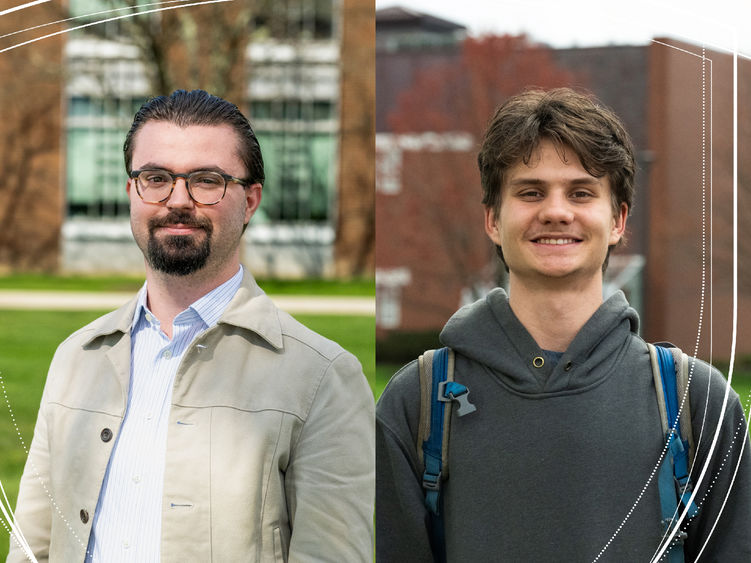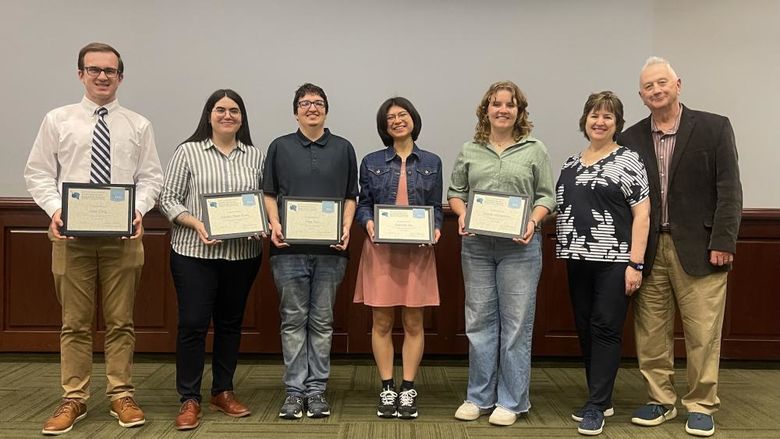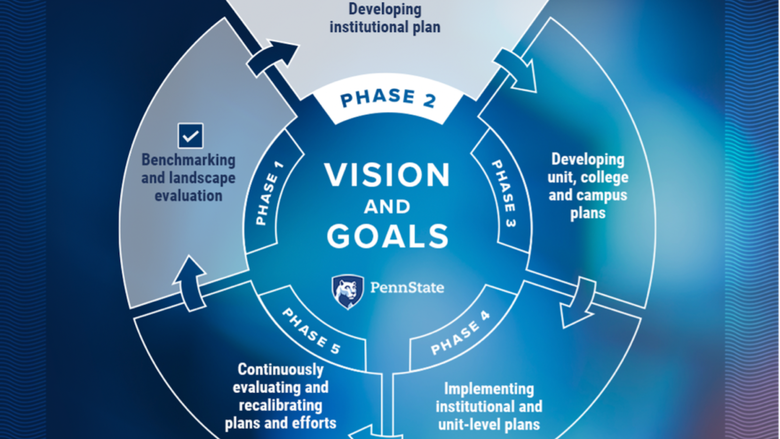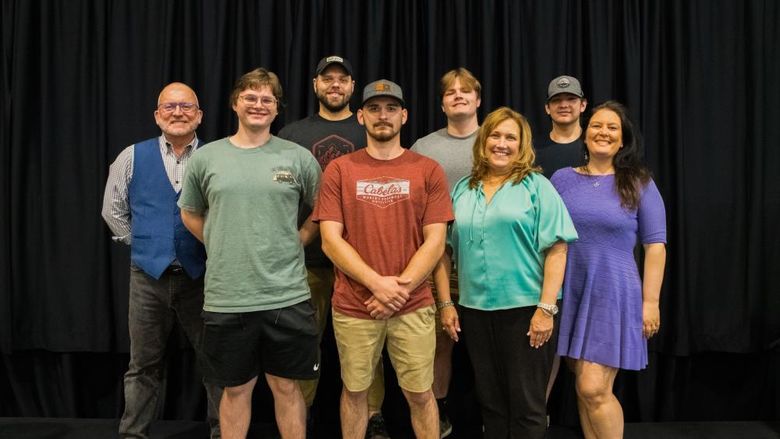
Lucas Beddick, left, and Tyler Duda, right, at Penn State Fayette, The Eberly Campus.
LEMONT FURNACE, Pa. — Lucas Beddick and Tyler Duda, students at Penn State Fayette, The Eberly Campus, were among 43 Penn State students awarded the 2024 Erickson Discovery Grant from the Office of Undergraduate Education at University Park. Recipients are awarded $3,500 each that may be used to cover living expenses and project costs related to undergraduate research.
Beddick, a third-year psychology major, will research “Self-Compassion as a Predictor of Tendences for Prosocial Behavior,” under the supervision of Aris Karagiorgakis, associate teaching professor of psychology at Penn State Fayette.
“Our hypothesis is that those who are self-compassionate will be more likely to help other people,” Beddick said. “It's a very fascinating and important subject. Self-focused constructs like this are becoming more common with the positive psychology movement. We don’t know yet what the implications are. If you’re trying to promote self-compassion and self-esteem, that's a lot of focus on yourself and not as much on other people. If the hypothesis I'm proposing is supported, then it would be evidence to suggest that being self-compassionate does not make you more selfish."
Duda, a second-year mechanical engineering major, will research “Stimulating Magnetic Monopole Interactions for Higher-Rank Gauge Groups,” under the supervision of Andrew Royston, assistant professor of physics at Penn State Fayette.
“Magnetic monopoles might have been created in the very early universe in the first split second after the big bang,” Duda said. “These simulations will show us how they could have interacted with each other. Elementary monopoles of this type, however, have not been observed experimentally so this is a very hypothetical situation. Our motivations for studying them do not come from possible future technologies but provide a better understanding of the magnetic monopoles.”





